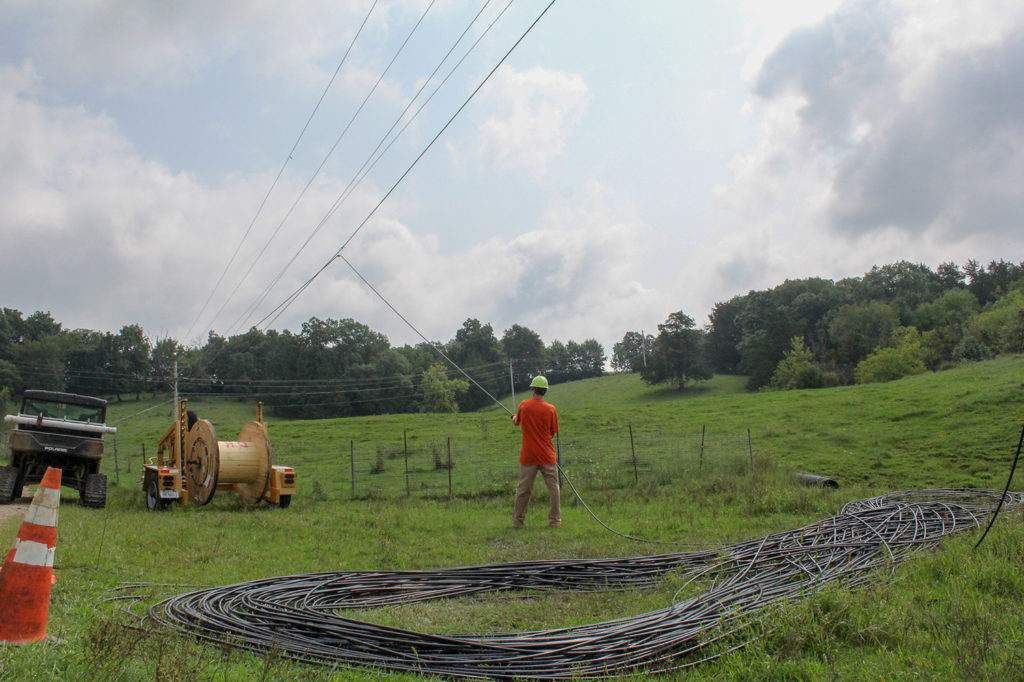
About 190 electric cooperatives have qualified to compete for up to $16 billion in the Federal Communications Commission’s largest reverse auction to fund broadband internet for unserved areas across the country.
The FCC on Oct. 13 released its list of 386 qualifying bidders, primarily telephone co-ops and other types of internet service providers, for the first phase of the $20.4 billion Rural Digital Opportunity Fund. The majority of electric co-ops are bidding through a consortium.
Winning bidders will receive funds over a 10-year period to deploy broadband to unserved census blocks identified by the FCC.
Phase I bidding begins on Oct. 29 and is expected to ultimately connect up to 6 million rural homes and businesses.
The auction requires providers to deliver minimum speeds of 25 megabits per second for downloads and 3 Mbps for uploads. It will use a weighted tier system and rules advocated by NRECA to ensure electric co-ops with superior service are not sidelined by cheaper internet providers with slower or spotty service in rural areas.
The FCC also recently released the final eligible locations and funding levels by census block group bidding area. Successful bidders must meet service milestones set by the commission.
“The FCC has now provided RDOF bidders clarity on the number of locations available and the amount of funding available in a given census block group bidding area,” said Brian O’Hara, NRECA senior regulatory director for broadband and telecom.
“Information on the census blocks up for bid could have a major impact on the ability of a co-op to participate. Each co-op looking to participate in the auction will have to crunch the numbers and adjust their bidding strategy accordingly. A census block project allotted less-than-expected RDOF money may no longer pencil out.”
The FCC is prohibiting RDOF money from going to areas receiving other government broadband grants, such as the U.S. Department of Agriculture’s Rural Utilities Service ReConnect awards.
Every home and business within the auctioned census block group must be served by the winning bidder, and no additional money will be awarded if more locations appear than were initially identified, according to the commission rules.
The Phase II auction for the remaining $4.4 billion, plus any unused Phase I funds, is expected to take place after the commission gathers detailed census data and mapping information to determine areas that remain without broadband.
Qualifying bidders for the first round of RDOF auction included at least 10 individual electric co-ops and four consortiums representing 180 electric co-ops.
The individual co-ops are Lutsen, Minnesota-based Arrowhead Electric Cooperative; Bandera, Texas-based Bandera Electric Cooperative; Cassville, Missouri-based Barry Electric Co-op; Young Harris, Georgia-based Blue Ridge Mountain EMC; Rio Grande, Ohio-based Buckeye Rural Electric Cooperative; Dafter, Michigan-based Cloverland Electric Cooperative; San Angelo, Texas-based Concho Valley Electric Cooperative; Grants, New Mexico-based Continental Divide Electric Cooperative; Bullhead City, Arizona-based Mohave Electric Cooperative; and Roseau-Minnesota-based Roseau Electric Cooperative.
Cathy Cash is a staff writer at NRECA.